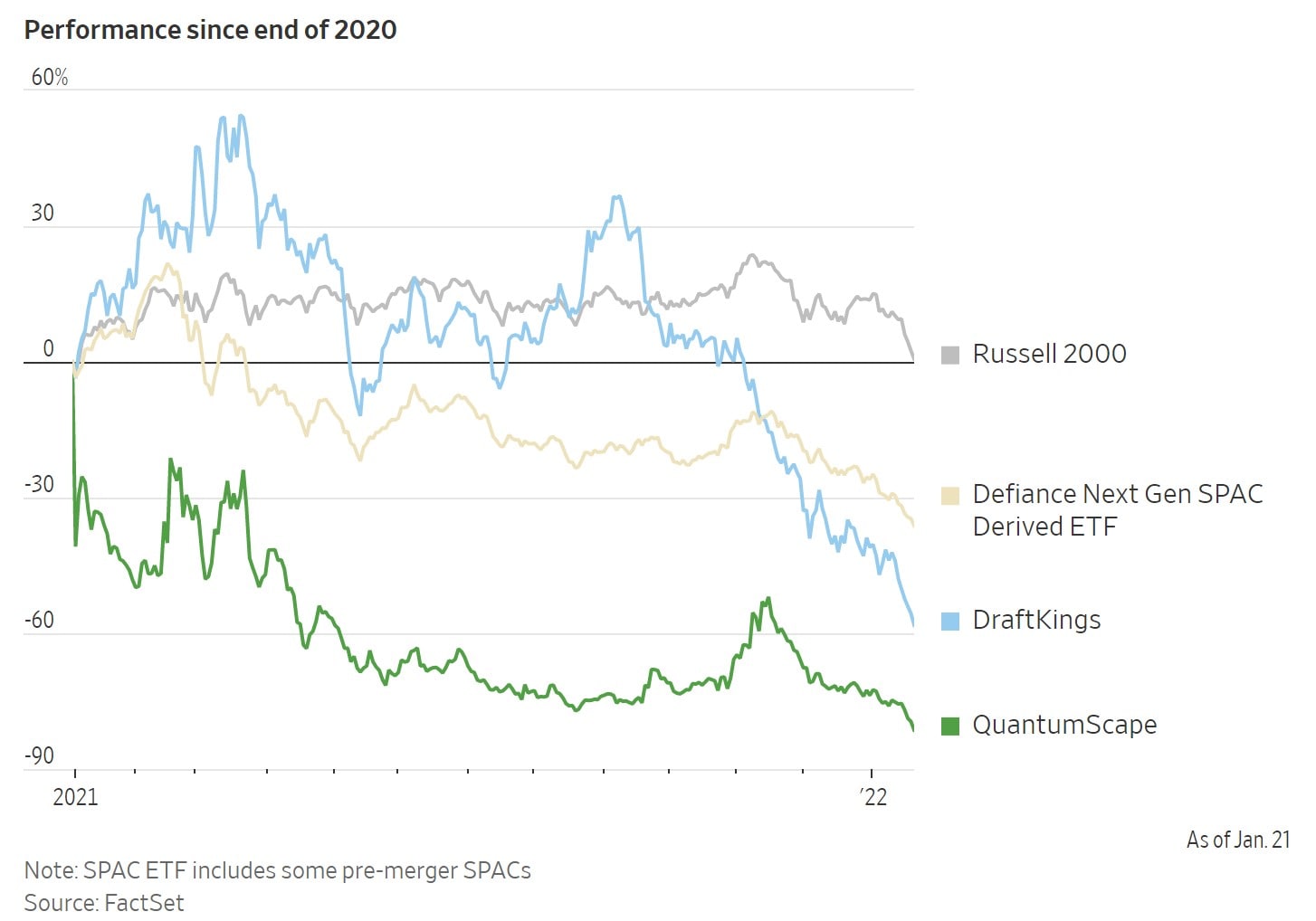| When Reddit temporarily became the market’s sweetheart last year, SPACs were undoubtedly one of the trend’s best men. Unfortunately, their union has been short-lived, and it seems as if the honeymoon phase has come to an end for both diamond hands and their right-hand man. The SPAC boom, and then… bust? In 2019, just 59 US companies went public via a SPAC. The following year, that number jumped to 248, and in 2021? A whooping 613. Of all US IPOs last year, 63% of them did so via a SPAC, and nearly half of all SPACs that went public since 2003 took place last year. This year is looking to be a much milder year, with 23 SPAC IPOs to date, cooling off to near 2020 levels. This dwindling momentum has incidentally coincided with accelerated losses and increasing headwinds within the SPAC sector of the market, as it seems the ephemeral nature of trends may be taking its toll on the blank check IPO. What happened? While there’s no singular reason we can point to as the SPAC buster, there are a few observations we can make. Regulation. The SEC is already ramping up its enforcement actions. That may be why we're seeing a growing number of SPAC deals falling through before the listed shell merges with its acquisition target. Ten companies have backed out of SPAC merger agreements since November. Sponsors are also being advised by their lawyers to more thoroughly vet a potential target's business and to increase transparency around conflicts of interest, given the increase in litigations. Conflict of interest? SPACs involve two main transactions—the initial IPO and then the merger—as well as two sets of players with starkly different outcomes. And when it comes down to it, retail investors may be the ones left holding the bag and diluted, as outlined in the academic study A Sober Look at SPACs. Where's the ROI? The ROI has proven to be abysmal in numerous cases, with countless examples of companies down more than 50% from their typical $10 starting point. 
We can look at countless examples like $CLOV, $SOFI, $LOTZ, $MILE, $SKLZ, $DKNG, $OPEN, $DM, and the list goes on seemingly forever. Although the aggregate market conditions haven't helped, you can't help but notice that all of these companies share the commonality of joining the market via SPAC. Going forward The future of SPACs is uncertain, but probably not as dismal as it may look right now. As is with any emerging trend in finance, blank check companies seem to be following a similar path to many other concepts that involve a frenzy, a reality check, and hopefully a better future after we’ve gotten a better hold on the market. 🔗 Finny lesson related to this topic: |
No comments:
Post a Comment